Albania found its way onto the tourist map a little more during the pandemic, when there were fewer travel restrictions in place compared to other countries at the time. Now, it has many bloggers (myself including) declaring it as the potential ‘next Croatia’ if tourism develops further.
Still, this small Balkan country manages to fly under most people’s radar, even though it has so much to offer.
However, for the moment, Albania might not be quite for everyone. It’s one of the least developed countries in Europe, which can be an important factor, especially if you are not accustomed to this in the destinations you typically choose.
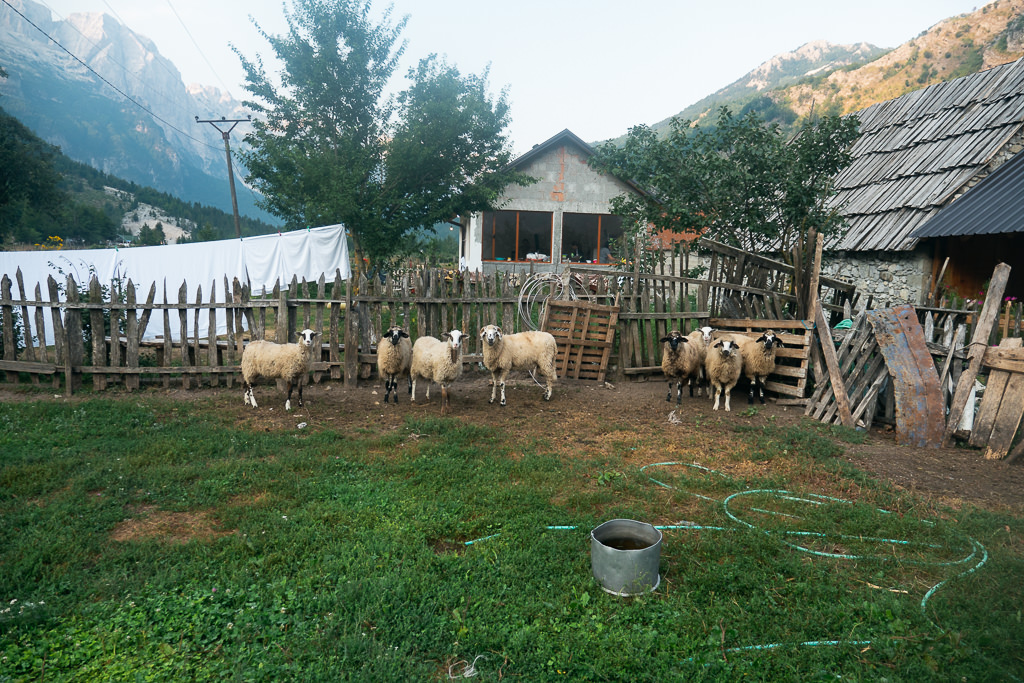
Albania often reminded me more of traveling in Central or Southeast Asia more than of (Western) Europe.
Just to explain what to expect: While some main roads have been improved using foreign funds, many are still potholed to the extreme. You may occasionally also see trash in the road berms or houses in disrepair. Public transport is quite usable though it’s underdeveloped compared to other European countries: it relies on old coach buses or furgons, unlicensed minibuses similar to what you find in many developing countries around the world. These are just some examples.
While I love places like this as they are also still authentic and filled with adventure, those expecting a highly polished holiday experience may feel more at home in nearby Greece or Croatia.
But then again… Albania’s coastline is amazingly unspoiled, arguably being the last remaining Mediterranean coastline that is still mostly pristine. The trekking in the Accursed Mountains is absolutely epic. And the new Vjosa Wild River National Park, now fully protecting one of the last wild rivers in Europe, is opening its gates for eco-tourism in 2024. If you’re into culture, cuisine, and history, then cities like Tirana and Gjirokaster offer all these in spades.
I do not doubt that in just a few short years, Albania will become one of Europe’s most sought-after destinations. Now is the time to explore it before the rest of the world finds out!
Not sure yet? Here are the top reasons why I think Albania is worth visiting.
Reasons to Visit Albania
It’s incredibly cheap
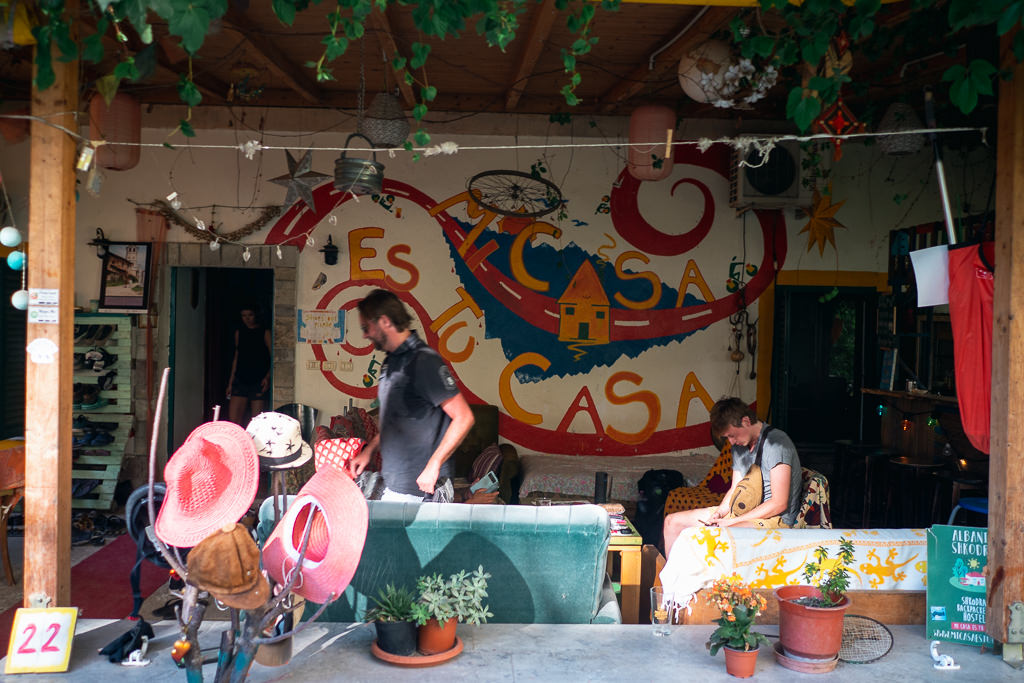
Albania sure does provide amazing value for money, being easily one of the cheapest countries in Europe. You can travel here for a fraction of the price you would pay in the likes of Greece and Italy, making it a great alternative to these Mediterranean hotspots.
Here are some ideas of the prices:
Mid-range boutique hotel in the capital: around €40
Dorm bed in a backpacker hostel: around €12.
Local dishes in a casual restaurant: €5
Street food such as burek, an Albanian meat-filled pastry: just €1
The diverse landscapes
Adventure lovers and beach bums will both find Albania to their liking, with the Albanian Alps, the Adriatic Sea, and many mesmerizing lakes to explore.
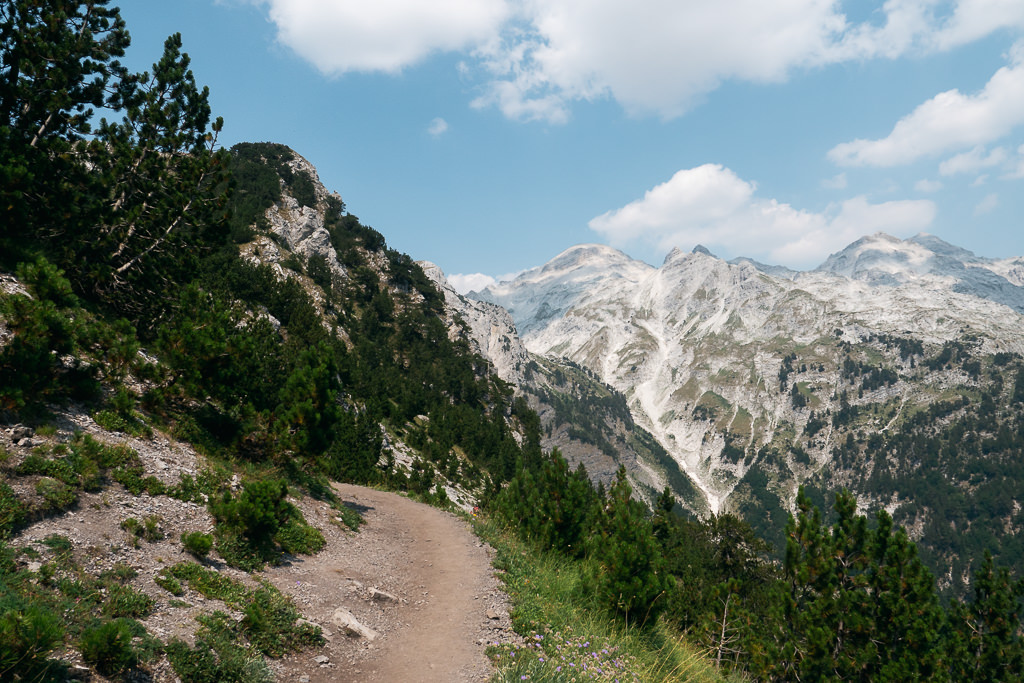
Almost three-quarters of Albania’s land is mountainous, making for some pretty spectacular trekking opportunities and jaw-dropping vistas that could rival those of Switzerland, Austria, and France.
Even if you’re not a keen hiker, the Valbona to Theth trail in the Alps is an absolute must. I promise the stellar views are worth every bit of this day-long hike! For longer treks, don’t miss the Peaks of the Balkans trail.
Looking for a beach? Head to the Albanian Riviera towns of Sarandë or Ksamil, where you can swim in gorgeous turquoise waters.
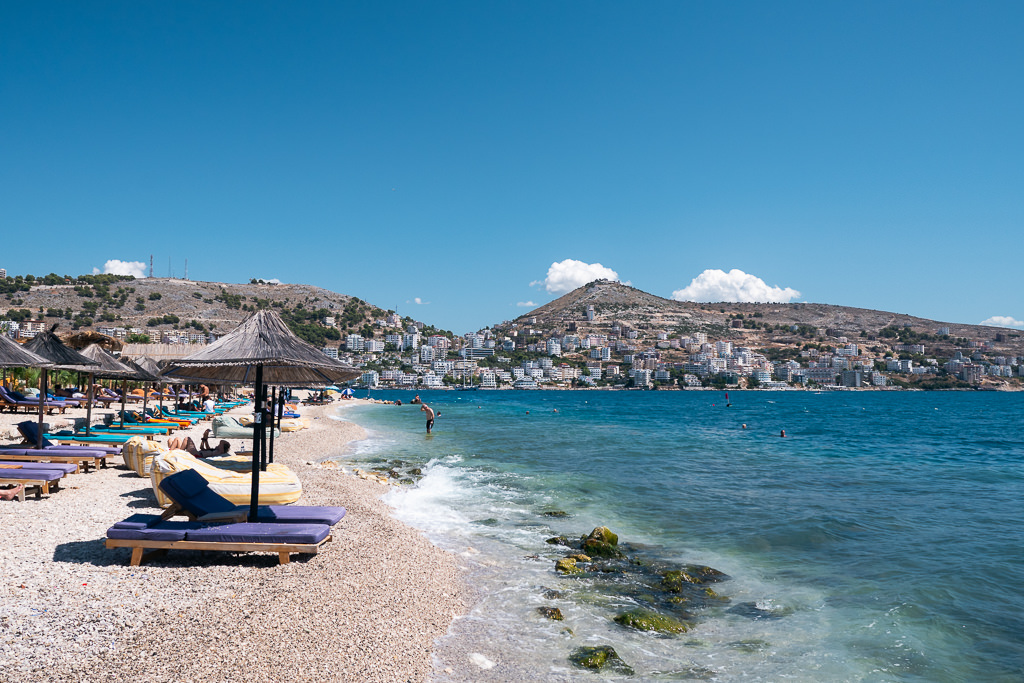
The history is fascinating
Did you know that Albania was once called “the North Korea of Europe”?
Albania has some of the most fascinating histories I’ve dived into in Europe, owing in particular to its grim decades under the ruthless and paranoid dictatorship of Enver Hoxha.
For a considerable part of the 20th century, Albania was completely closed off to the Western world, developing on a separate track from its neighbors — all the while being linguistically unique from the rest of Europe.
Over the centuries, Albania has also been repeatedly conquered by the likes of the Roman, Ottoman, and Bulgarian Empires, each adding their marks on the country.
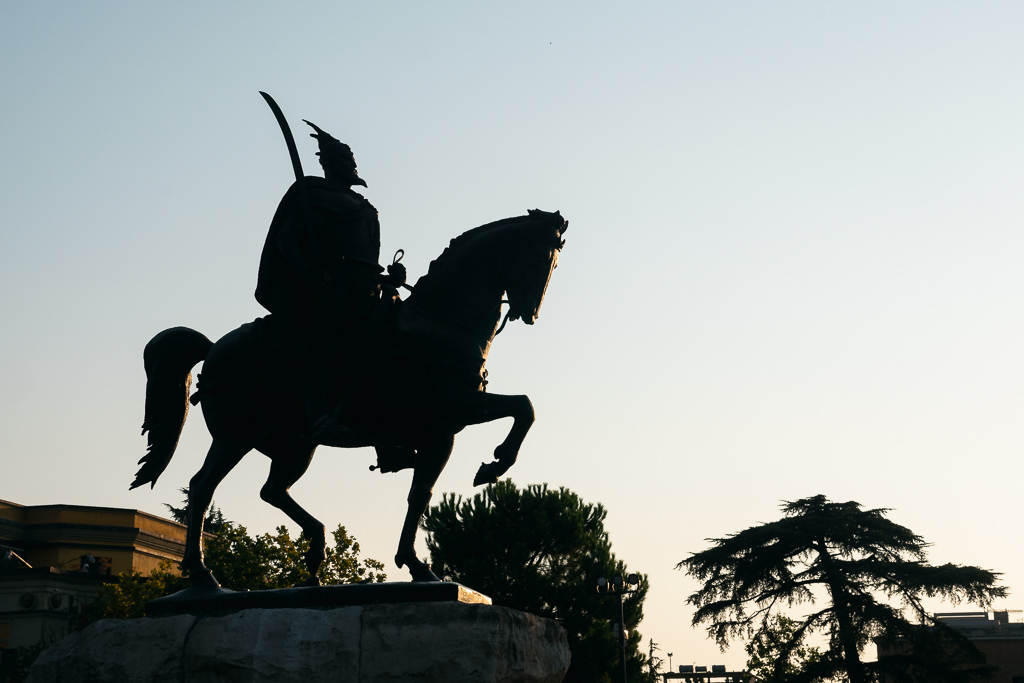
The turbulent history remains evident throughout modern Albania. Ottoman architecture dominates cities like Berat, while nuclear bunkers from the late 1900s are scattered around Albania, some of which you can visit in Tirana.
It’s safe to say Albanians have been through a hell of a lot of hardships, and brushing up on your history at sites like the National History Museum will give you a new appreciation for this resilient country.
It has a thriving backpacking scene
The Balkan region is a mecca for backpackers looking to get a little off the beaten path, and Albania has become somewhat of a hub for travel in this pocket of Europe.
It’s much quieter than the ever-popular backpacking trails of Western and Southern Europe but has become an up-and-coming spot for travelers who want to experience a more untouched collection of countries.
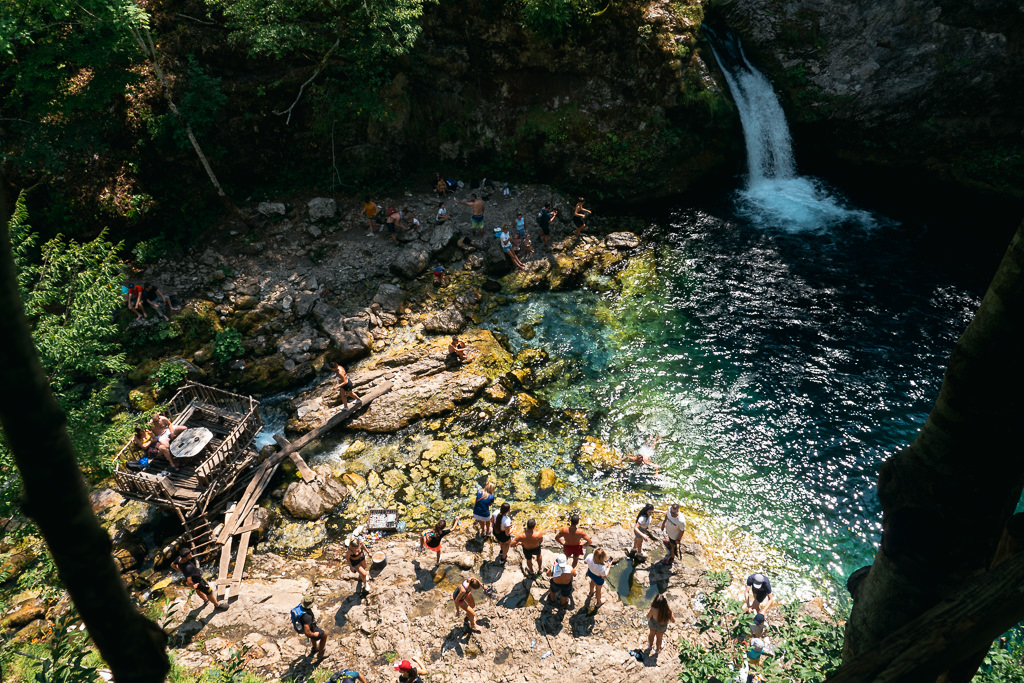
The hostel scene is thriving in Albania. Something I appreciated a lot was how many hostels are local and family-run, having a real ‘traveler vibe’ that is sometimes missing from larger chain hostels. (This also goes for nearby Bosnia-Herzegovina by the way, where I found the hostels to have a genuine local charm.)
If you like down-to-earth travel, you will surely love travelling in Albania, where things aren’t yet so overorganized or commercialized.
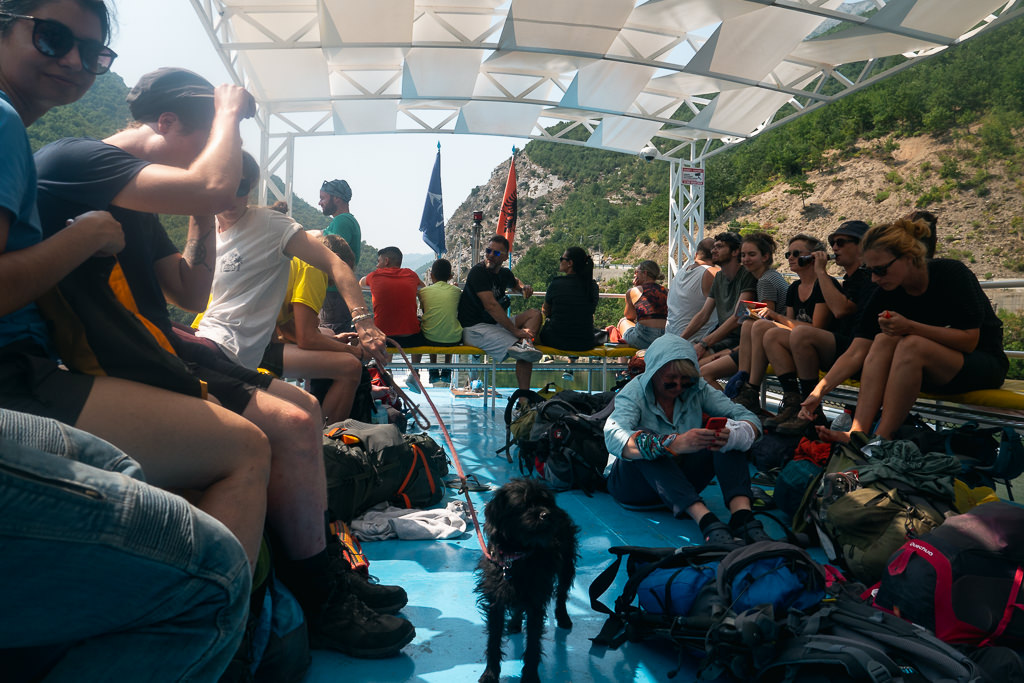
The food is to die for
Albania’s location in the southeast of Europe means it’s influenced by the cuisines of its Balkan neighbors, as well as that of countries like Turkey and Italy.
This has made Albania’s food a unique melting pot of flavors. Even within the country, you’ll come across different dishes depending on the region you’re visiting.
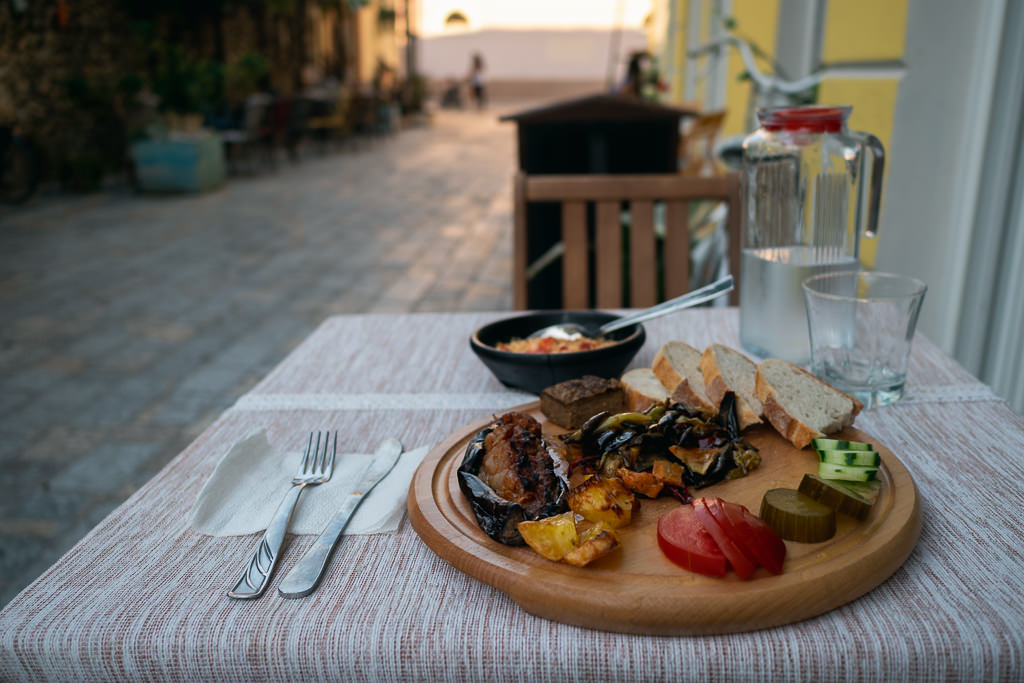
Here is a quick rundown of all of the foods you simply can’t leave Albania without trying:
- Burek – This flaky pastry dish is typically filled with beef but is also commonly made using cheese, potatoes, or vegetables. You won’t have to look far to get your hands on some, as this super-inexpensive favorite is found in bakeries and cafes in almost every corner of the country. Though it’s often considered a breakfast food, it’s perfectly acceptable to tuck into burek at any time of day.
- Baklava – Having spent centuries under Ottoman rule, it’s no surprise that baklava is among Albanian’s top choices when it comes to desserts. If you’re unfamiliar with this sweet treat, it’s a combination of crispy filo pastry, nuts, and syrup. Like byrek, you’ll be able to find baklava just about anywhere in the country.
- Tavë Kosi – Albania’s national dish, tavë kosi, is a hearty mix of baked lamb, rice, yogurt, and eggs. Although it sounds like a peculiar combination, each ingredient comes together perfectly to create a warm, casserole-like dish that’s perfect after a long day of hiking! There’s plenty of debate about where serves the best tavë kosi, but I can’t fault Tirana’s take on this culinary delight.
- Fërgesë – Feta cheese, tomatoes, and peppers are baked together in this tasty dish, which can be enjoyed on its own or as a side. Depending on where in the country you find yourself, the cheese can vary, so every plate is a little different from the last. It’s usually served in central Albania, but you won’t struggle to find fërgesë in most towns and cities.
The nightlife scene
Admittedly, being an older backpacker, I don’t dive into the nightlife as much these days. However, I could easily tell that Albania has so much to offer on this front.
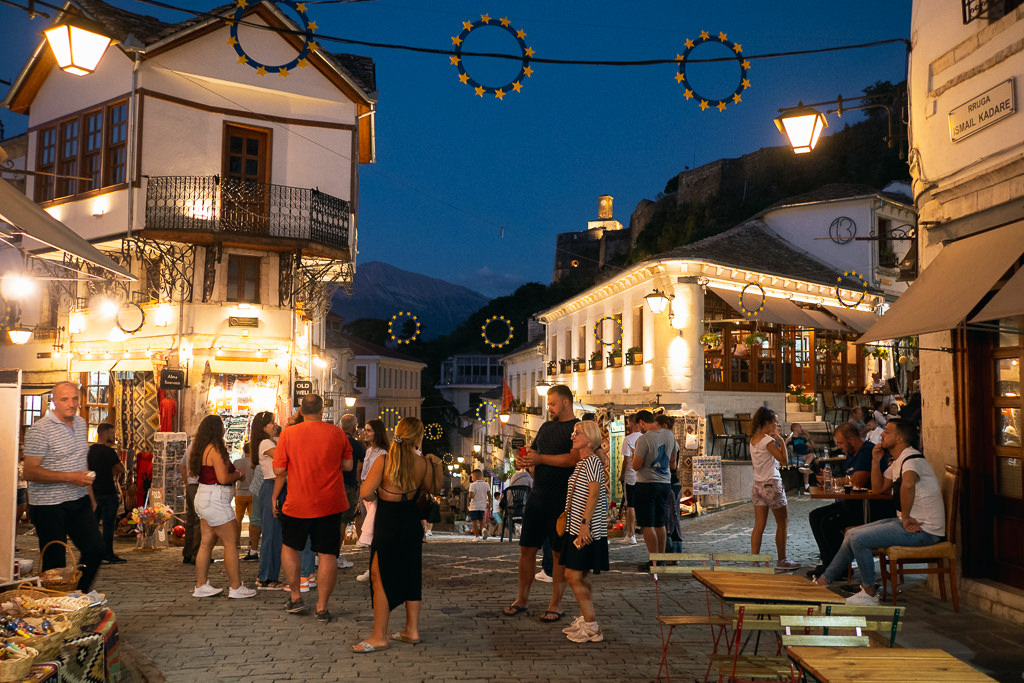
While I skipped the nightlife in Tirana, fellow travelers were very much into the scene there. Cozy pubs, swanky cocktail bars, and nightclubs open until the early hours are found in many of Albania’s larger cities, but the capital is home to some of the best locations for a night on the town.
Even if you’re not typically a bar-goer, I can pretty much guarantee you’ll consume some raki by the end of your stay. This is Albanian’s best-loved spirit, and it also happens to be strong enough to make your eyes water!
Enjoyed after meals, as a toast, and even as part of breakfast by some Albanians, this traditional drink will probably be offered to you more times than you can count.
Albanian people are extremely hospitable
On the subject of raki, the reason this pungent liquor will be served up to you over and over again is largely because of how welcoming and warm the Albanian people are. If you’re invited for a meal by locals, expect tons of raki to be flowing!
No matter what part of the country I visited, I couldn’t believe the hospitality of the locals.
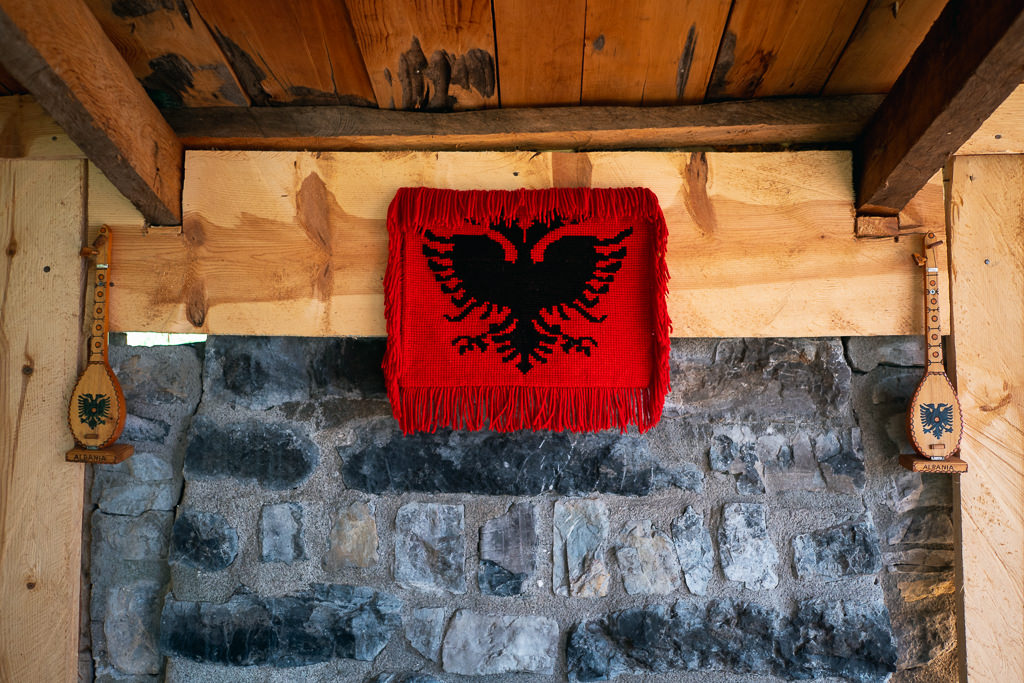
It’s much safer than you might expect
Finally, what keeps some visitors away is outdated information about the security situation in Albania.
To be fair, Albania did have quite a ‘wild west’ period after the fall of the dictatorship in the 1990s, which rightfully earned it a reputation for crime and violence. But those days are long past.
Today Albania is a safe country to travel through and one that’s hugely focused on reducing crime and corruption so as to one day join the European Union. While illicit business does take place, it’s something that is rather behind-the-scenes and not a part of daily life (not entirely unlike how it is in southern parts of Italy).
You may be aware that there is still such a thing as the ‘Albanian mafia’. When action movies require some baddies, they will often wheel out the Albanian stereotype. But while they still have some basis in reality, you have little to worry about as a tourist.
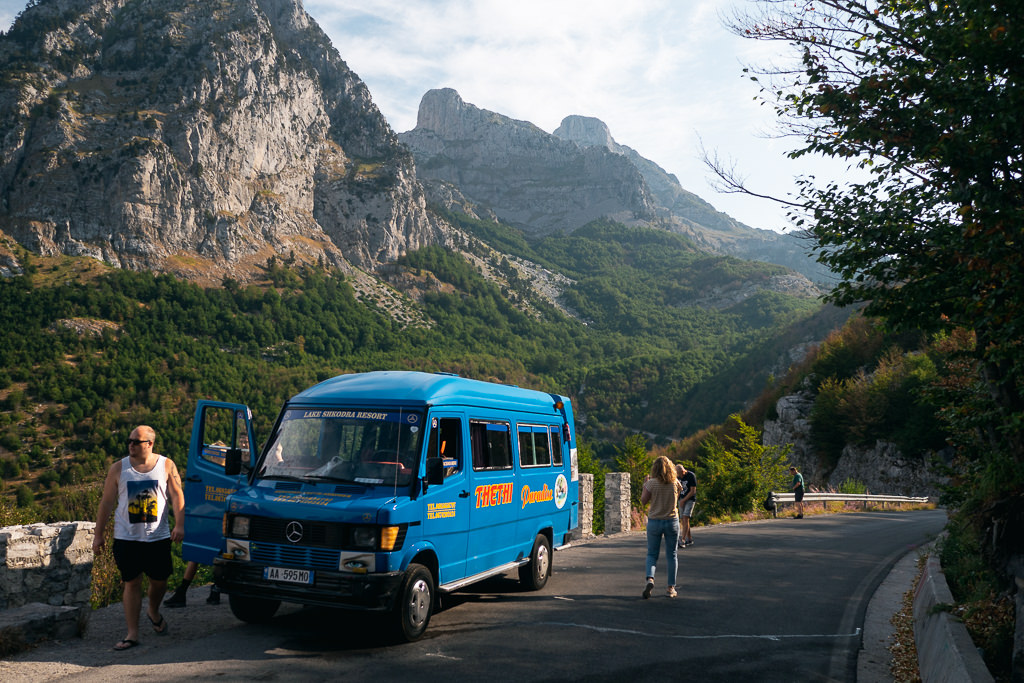
Thanks to a solid police presence and a generally low crime rate, Albania has gained a reputation as one of the safest spots in the Balkans. I’ve met many solo (female) travelers in Albania who considered it very safe, and even hitchhiking seems to be a popular way to travel around Albania, which would not be the case if there were many dangers involved.
Of course, when it comes to major cities, I usually tend to be especially conscious of keeping my belongings hidden and avoiding isolated or dimly lit areas, though Tirana felt much safer than a lot of similarly sized cities.
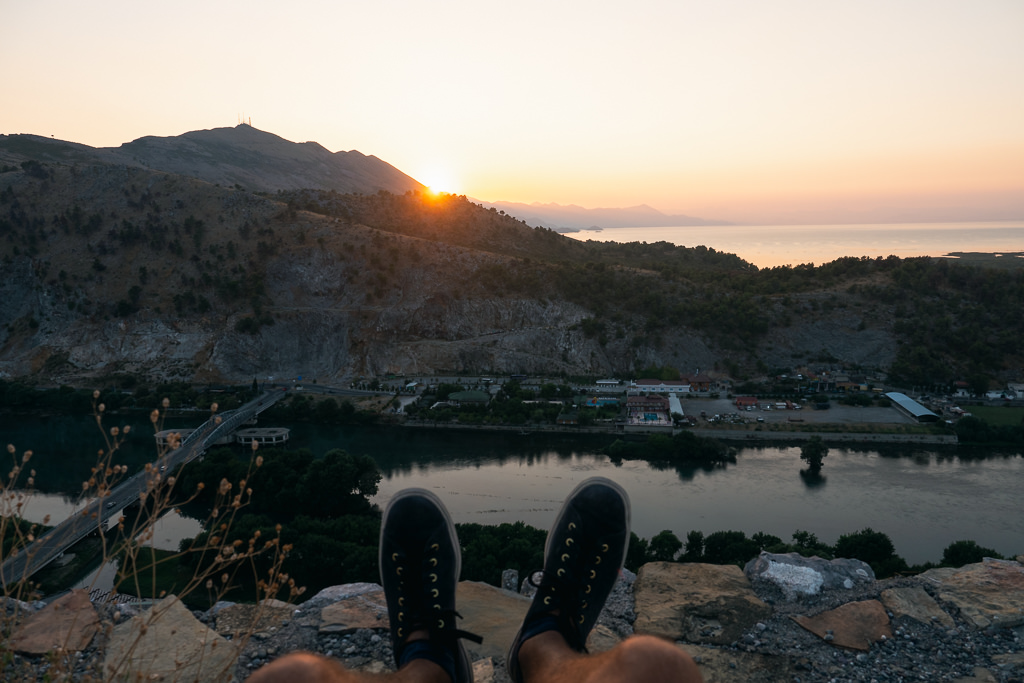
So, all in all, is Albania worth visiting?
My answer is an emphatic “YES!”, especially because I love budget and adventure travel for which Albania is most suited.
But if you’re looking for a travel destination where the buses always run on time and where all the tourism infrastructure is perfect, then other countries will (for now) be a better choice.
Some links may be affiliate links, meaning I may earn commission from products or services I recommend. For more, see site policies.
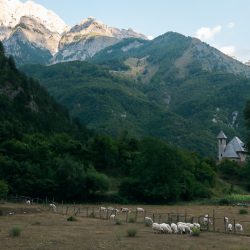
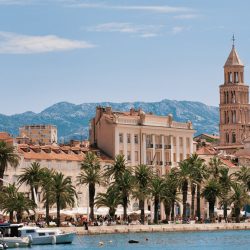
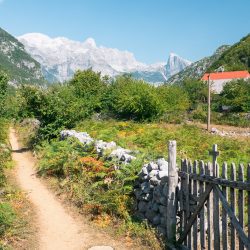
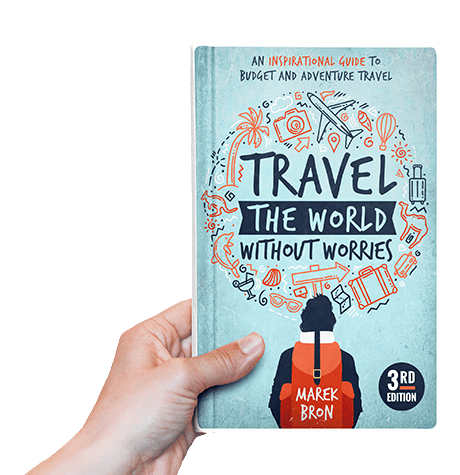



Interesting read as I traveled to Albania last summer. It was hard to find info about public transport so I took tours or hired a driver for parts. The coast was pretty touristy but the beaches were lovely. And hiking in the Accursed Mountains was quite spectacular. There is a lot of potential for development there so go before it’s crowded.
Agree, it’s really a diamond in the rough. The coast in particular could develop fast!
A compelling review that inspires me to add Albania to my travel list. Thank you.